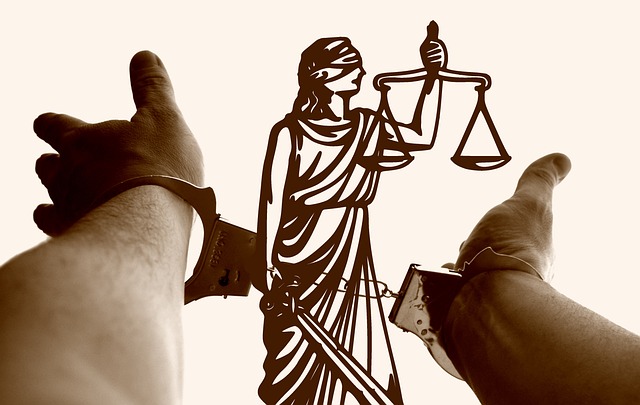RF Regulatory Agencies tackle complex administrative law disputes, including licensing issues, compliance failures, and equipment malfunctions, requiring a deep understanding of RF concepts and policies. They strive to balance enforcement with due process, protecting public safety and promoting fair competition in the radio frequency (RF) spectrum. Common issues involve ensuring equitable access for diverse users like telecoms, government agencies, and emerging technologies like 5G and IoT. Businesses facing RFRA investigations need robust white-collar defense strategies, including thorough documentation, compliance proof, and a strong track record of adhering to industry standards to mitigate risks and successfully navigate these high-stakes cases.
“RF Regulatory Agency Investigations: Unraveling Complexities in Spectrum Management
Regulatory bodies play a pivotal role in overseeing wireless communication, particularly with the rise of RF (Radio Frequency) technologies. This article offers an in-depth look at administrative law cases involving these agencies. We explore common issues in spectrum utilization and licensing, highlighting their significance. Furthermore, it delves into regulatory agencies’ mandate to foster fair market practices and examines legal defenses for businesses during inquiries. Additionally, we navigate the investigatory process, emphasizing stakeholders’ rights and expectations.”
- Understanding RF Regulatory Agency Investigations: A Glimpse into Administrative Law Cases
- Common Issues Arising in RF Spectrum Utilization and Licensing
- The Role of Regulatory Agencies in Ensuring Fair Market Practices
- Legal Implications and Defenses for Businesses in RF Regulatory Inquiries
- Navigating the Investigatory Process: Rights and Expectations of All Stakeholders
Understanding RF Regulatory Agency Investigations: A Glimpse into Administrative Law Cases
RF Regulatory Agency Investigations delve into complex issues within the realm of administrative law, where cases often revolve around common problems such as licensing disputes, compliance failures, and equipment malfunctions. These investigations play a crucial role in ensuring fair competition and protecting public safety in the radio frequency (RF) spectrum. When regulatory agencies uncover potential violations, they employ a meticulous process to gather evidence, assess penalties, and facilitate resolutions. This administrative legal framework is designed to balance enforcement and due process, aiming for justice while considering the unique challenges presented by RF technologies.
The intricacies of these cases demand a deep understanding of not just technical RF concepts but also the nuances of regulatory policies. Strategic legal defenses are pivotal in navigating such investigations, especially when addressing white-collar and economic crimes. A successful defense strategy for RF Regulatory Agency Investigations should focus on achieving extraordinary results, ensuring that individuals and organizations can defend their rights while adhering to stringent regulatory environments. This balance is essential for fostering innovation and maintaining a robust market without compromising ethical standards.
Common Issues Arising in RF Spectrum Utilization and Licensing
The radio frequency (RF) spectrum is a critical resource for modern communication systems, but its utilization and licensing present several common issues in administrative law cases. One of the primary challenges is ensuring fair access to the RF spectrum among various users, including telecom operators, government agencies, and emerging technologies like 5G and IoT devices. This often leads to disputes over frequency allocations and licensing terms.
Across the country, regulatory bodies are tasked with managing these complexities throughout all stages of the investigative and enforcement process. They must balance the needs of different stakeholders while promoting innovation and efficient spectrum utilization. Additionally, issues related to intermodulation interference, spectrum sharing, and unlicensed use contribute to the administrative burden, requiring in-depth investigations to resolve common problems that arise from the dynamic nature of RF spectrum usage within the philanthropic and political communities.
The Role of Regulatory Agencies in Ensuring Fair Market Practices
Regulatory agencies play a pivotal role in upholding fair market practices and ensuring that businesses operate within ethical boundaries. These organizations are tasked with investigating potential violations, which often involve complex legal scenarios, including common issues in administrative law cases. By delving into these matters, they safeguard consumers’ rights and maintain the integrity of various industries.
Through meticulous scrutiny, regulatory agencies identify and address practices that may distort competition, mislead customers, or harm public interest. Their expertise enables them to interpret and enforce regulations effectively. Moreover, an unprecedented track record of successful investigations demonstrates their capability to adapt to evolving business landscapes and resolve even the most intricate legal dilemmas, ensuring a level playing field for all market participants.
Legal Implications and Defenses for Businesses in RF Regulatory Inquiries
When facing RF Regulatory Agency investigations, businesses must be aware of the potential legal implications and have robust defenses in place. These inquiries often involve complex administrative law issues, where common pitfalls include non-compliance with radio frequency (RF) standards and licensing regulations. Businesses may face significant penalties, including fines, license revocations, or even criminal charges, if found guilty of misconduct.
A strategic white collar defense is crucial in navigating these high-stakes cases. Companies should document their processes, maintain thorough records, and demonstrate compliance with RF regulations. An unprecedented track record of adherence to industry standards can be a powerful defense mechanism, showcasing good faith efforts to avoid regulatory issues. By addressing potential violations proactively and providing evidence of due diligence, businesses can mitigate risks and effectively respond to administrative law challenges.
Navigating the Investigatory Process: Rights and Expectations of All Stakeholders
Navigating the investigatory process in RF Regulatory Agency cases can be complex, particularly for stakeholders unfamiliar with administrative law procedures. It’s crucial to understand that both rights and responsibilities are in play during such investigations. Companies and individuals under scrutiny should expect transparent communication from the agency, clear explanations of the allegations, and an opportunity to present their case.
While agencies like the RF Regulatory Agency (RFRA) must adhere to due process guidelines, ensuring a fair investigation, common issues in administrative law cases can arise. These may include misunderstandings about regulatory requirements, data interpretation discrepancies, or disputes over evidence admissibility. A strong understanding of these potential hurdles and experience in navigating them is beneficial, especially for those with an unprecedented track record in defending against RFRA investigations or those engaging in white-collar defense strategies. Avoiding indictment requires a proactive approach and meticulous attention to detail throughout the investigatory process.
RF Regulatory Agency investigations play a pivotal role in upholding fair market practices and addressing common issues in administrative law cases related to RF spectrum utilization. By understanding these processes, businesses can better navigate inquiries, protect their legal rights, and ensure compliance with regulatory requirements. This knowledge is essential for all stakeholders involved, enabling them to collaborate effectively during investigations and foster a more transparent and balanced RF spectrum ecosystem.






